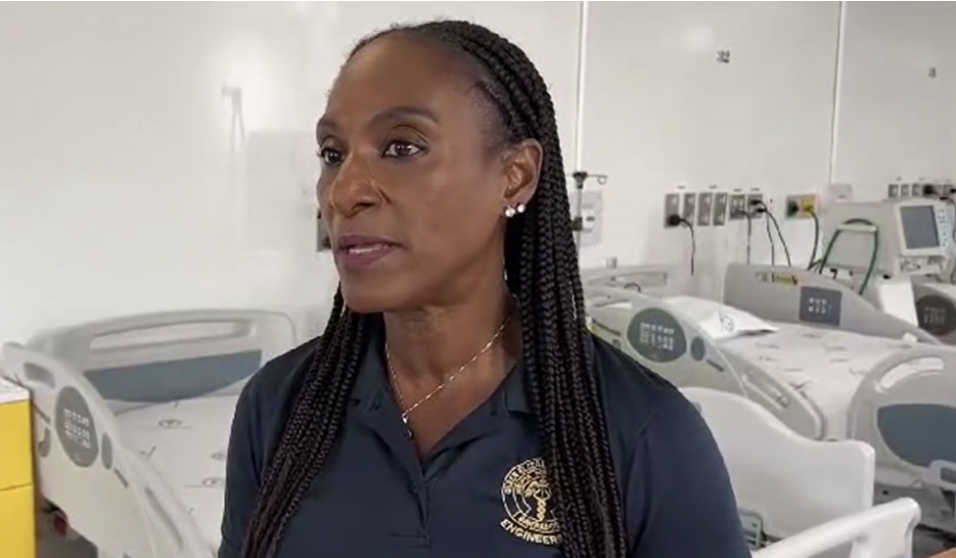Queen Elizabeth Hospital to Introduce Advanced Radiotherapy with New Linear Accelerator

August 28, 2024
Queen Elizabeth Hospital (QEH) advances cancer care with cutting-edge linear accelerator technology, promising precise and effective treatment for patients. Significant upgrade expected by year's end. Government invests £130 million in healthcare infrastructure.
In a major leap forward for cancer care on the island, the Queen Elizabeth Hospital (QEH) has inched closer to introducing cutting-edge radiotherapy treatment with the installation of a state-of-the-art linear accelerator. This advanced technology promises to revolutionise cancer treatment, offering patients more precise, effective, and potentially life-saving care, according to Paula Agbowu, the hospital’s director of engineering services.
“Coming up is the acquisition of a linear accelerator machine that will be used to help treat some of our oncology cases,” Christine Greenidge, the hospital’s chief operating officer, said during this week’s Pulse Radio programme.
The new linear accelerator, expected to be operational by year’s end, represents a significant upgrade from the hospital’s current cobalt-based technology. It will enable oncologists to deliver highly targeted radiation therapy, potentially improving outcomes and reducing side effects for cancer patients, according to Agbowu.
The director of engineering services highlighted the transformative impact this acquisition will have on patient care.
“The actual linear accelerator will mean that the kind of treatment that we will be able to afford our patients will be much more enhanced than the treatment that we had before,” she stated. “This is an upgrade and a step up from what we had in place before.”
The installation of this sophisticated equipment is part of a broader £130 million investment in the hospital’s infrastructure and technology. This substantial funding, announced earlier this year by the Ministry of Health, underscores the government’s commitment to enhancing healthcare services across the island. The first tranche of funding is expected to be released in the coming weeks, Agbowu revealed.
The hospital is undertaking comprehensive infrastructure improvements, including modifications to the treatment bunker, electrical systems, and IT infrastructure. Crucially, the QEH is investing in its staff to ensure they can maximise the potential of this new technology. Physicists, radiographers, and oncologists are already engaged in intensive training programmes to familiarise themselves with the linear accelerator’s advanced capabilities.
Meanwhile, the QEH is undertaking an ambitious initiative to transform healthcare delivery, making it more accessible and efficient for patients.
At the heart of this overhaul is an expansion of telehealth services, allowing remote monitoring of patients with chronic conditions such as congestive heart failure. This innovative approach enables medical staff to track vital signs from patients’ homes, reducing the need for frequent hospital visits and allowing for timely interventions.
QEH is also transitioning to electronic medical records, streamlining appointment management and granting patients easier access to their health information. The comprehensive upgrade extends to health information systems, enhancing both patient care and data protection. These initiatives are part of the $130 million capital expenditure programme designed to acquire new technology and upgrade existing systems at the hospital.


